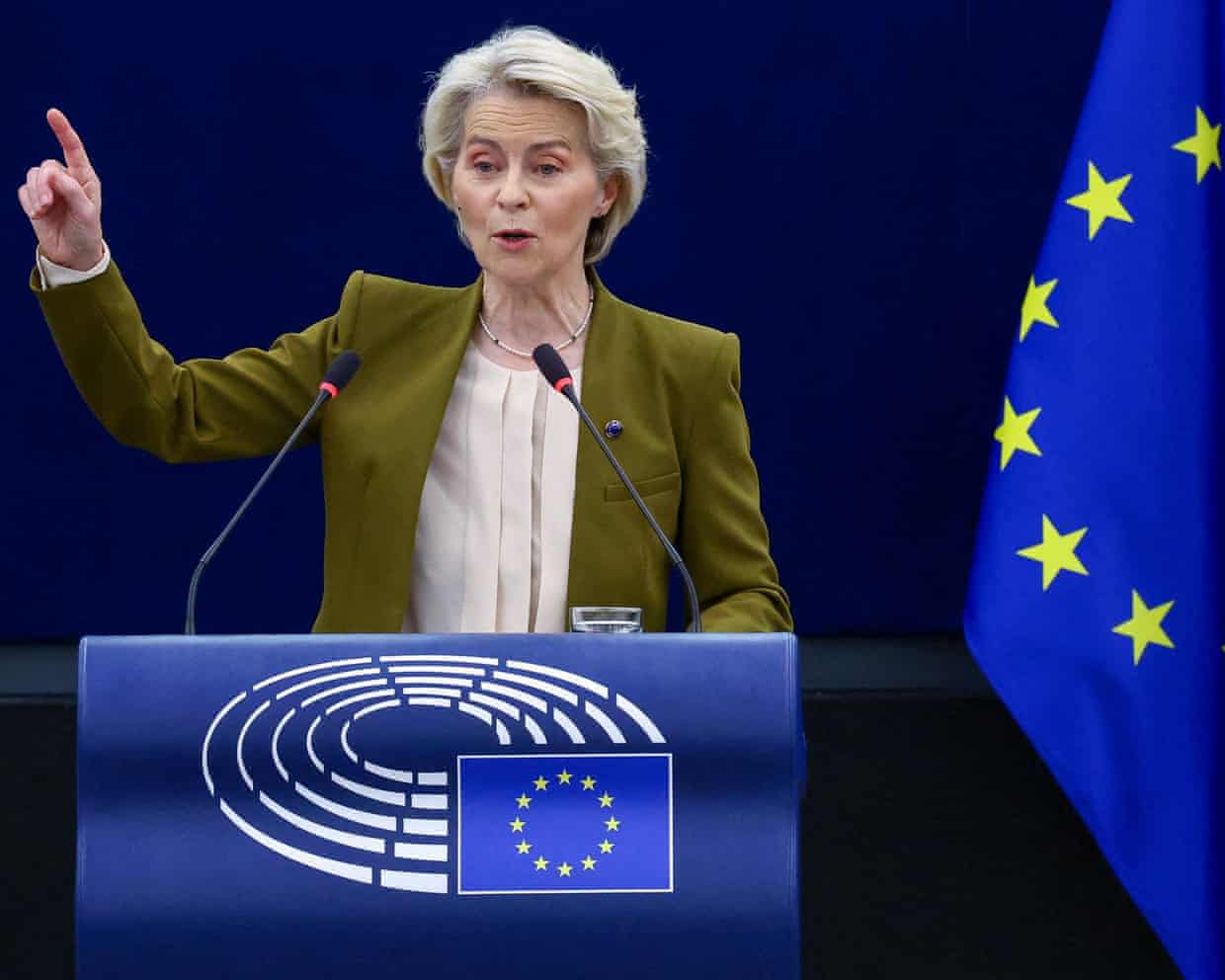Foreign interference or opportunistic grifting: why are so many pro-Trump X accounts based in Asia?

When X rolled out a new feature revealing the locations of popular accounts, the company was acting to boost transparency and clamp down on disinformation.The result, however, has been a circular firing squad of recriminations, as users turn on each other enraged by the revelation that dozens of popular “America first” and pro-Trump accounts originated overseas.The new feature was enabled over the weekend by X’s head of product, Nikita Bier, who called it the first step in “securing the integrity of the global town square.” Since then many high-engagement accounts that post incessantly about US politics have been “unmasked” by fellow users.An Ivanka Trump fan account that posts about illegal immigration to the US was shown to be based in Nigeria.
MAGAStorm, spreading conspiracy theories about the assassination attempt on Trump, was found to be in eastern Europe.AmericanVoice which posts anti-Islam content, is based in India.Users have noted that a high proportion of these potentially misleading accounts – many of which claim to be in America – are operating from Asia, but experts are in disagreement over whether they may be state-backed influence campaigns or even opportunists trying to make a quick buck.In 2024 the Centre for Information Resilience (CIR) revealed that a network of accounts on X were posing as young American women, stealing images from European influencers to burnish their credibility.Often these images were manipulated to include pro-Trump hats and clothing.
The new location feature on X has allowed Benjamin Strick, who ran the original investigation, to confirm that almost all of these accounts purporting to be “independent Trump supporting” women are located in Thailand.Strick noted that while promising to “follow patriots” and “stand with Trump”, these accounts often also posted anti-Islamic content too.In their 2024 report, the CIR found that these accounts exploited “pre-existing societal tensions” in their efforts to spread disinformation.“Accounts seized upon news stories relating to gender and LGBTQ+ rights, in some cases allowing them to undermine Democratic policies and promote Republican views.”Fears that foreign actors are using social media to influence US voters reached their zenith in the months after Trump’s 2016 election win over Hillary Clinton.
An intelligence assessment the following year detailed the steps that the Russian state took to bolster Trump using bot farms.In the years since, experts have warned that foreign influence campaigns are becoming more sophisticated, but as America’s politics has become more partisan and voters more siloed, those warnings appear to have been forgotten.However it’s possible though that the sheer number of pro-Trump accounts around the world might have as much to do with turning a profit as political influence, says Simon Copland, a researcher at the Australian National University.“Social media is really based on attention … [and] on places like X or Twitter you can get money from that,” he says, adding that at the moment, the best way to get attention “is to be posting about Donald Trump.”Changes to the way X monetises its content could be a factor as well.
In 2024, the platform announced that creators would now be paid based on the levels of engagement with their content,At the time, some expressed concern that this would incentivise users to create more and more controversial content,“When platforms begin to reward engagement, creators will begin posting anything that drives a discussion of some sort, including posts that are designed to enrage users, forcing them to reply or comment,” TechCrunch wrote at the time,“That’s where things like rage bait come about,” says Copland,“People deliberately induce rage to try to encourage people to go on to the platforms” and engage in the content.
The calculations used to determine a user’s payments remain opaque and it’s not clear how much money overseas users posing as Maga-faithful could be making.A BBC investigation from 2024 suggested that for some, it could be thousands of dollars.Experts in southeast Asia’s disinformation space say such figures could be highly motivating for people in the region.A 2021 report into southeast Asia’s “disinformation crisis” found that many accounts pushing xenophobic and misogynistic messages to appeal to the US right were not particularly invested ideologically, but “driven by almost purely entrepreneurial motivations.”While the perpetually online cadre of Trump’s followers erupt in anger over the origins of some accounts – many of which have now been suspended – others have been left questioning why the issue matters at all.
Copland points to the flow of rightwing ideas, and how policies dreamed up in dank corners of the internet can make their way to the heights of US and European politics,On the night that X began to reveal the location of accounts, Donald Trump shared a post from an account called Trump_Army_,With nearly 600,000 followers, the account regularly amplifies conspiracy theories; in a recent post it asked its followers if “JFK was killed for trying to expose the same crooks Trump is now exposing”,Soon after, another user pointed out that Trump_Army_ was based in India,It’s among the more innocuous examples, but illustrative of the way the wider ecosystem of right-wing politics operates online.
“Extreme ideas start in these dark corners of the internet.They spread, they become memes, they go on to more mainstream platforms and then you see politicians pick them up,” says Copland.‘In May, Trump ambushed South African president Cyril Ramaphosa in the Oval Office, accusing him of turning a blind eye to a “white genocide” against South African farmers.These widely discredited claims are thought to have in-part originated in far-right chatrooms.“We have to be taking this stuff seriously,” he warns, because these ideas “are suddenly becoming mainstream.
”X was approached for comment.

European parliament calls for social media ban on under-16s
Children under 16 should be banned from using social media unless their parents decide otherwise, the European parliament says.MEPs passed a resolution on age restrictions on Wednesday by a large majority. Although not legally binding, it raises pressure for European legislation amid growing alarm about the mental health risks to children of unfettered internet access.The European Commission, which is responsible for initiating EU law, is already studying Australia’s world-first social-media ban for under-16s, which is due to take effect next month.In a speech in September, the commission’s president, Ursula von der Leyen, said she would watch the implementation of Australia’s policy

ChatGPT firm blames boy’s suicide on ‘misuse’ of its technology
The maker of ChatGPT has said the suicide of a 16-year-old was down to his “misuse” of its system and was “not caused” by the chatbot.The comments came in OpenAI’s response to a lawsuit filed against the San Francisco company and its chief executive, Sam Altman, by the family of California teenager Adam Raine.Raine killed himself in April after extensive conversations and “months of encouragement from ChatGPT”, the family’s lawyer has said.The lawsuit alleges the teenager discussed a method of suicide with ChatGPT on several occasions, that it guided him on whether a suggested method would work, offered to help him write a suicide note to his parents and that the version of the technology he used was “rushed to market … despite clear safety issues”.According to filings at the superior court of the state of California on Tuesday, OpenAI said that “to the extent that any ‘cause’ can be attributed to this tragic event” Raine’s “injuries and harm were caused or contributed to, directly and proximately, in whole or in part, by [his] misuse, unauthorised use, unintended use, unforeseeable use, and/or improper use of ChatGPT”

Europe loosens reins on AI – and US takes them off
Hello, and welcome to TechScape. I’m your host, Blake Montgomery, writing to you from an American grocery store, where I’m planning my Thanksgiving pies.In tech, the European Union is deregulating artificial intelligence; the United States is going even further. The AI bubble has not popped, thanks to Nvidia’s astronomical quarterly earnings, but fears persist. And Meta has avoided a breakup for a similar reason as Google

Macquarie Dictionary announces ‘AI slop’ as its word of the year, beating out Ozempic face
AI slop is here, it’s ubiquitous, it’s being used by the US president, Donald Trump, and now, it’s the word of the year.The Macquarie Dictionary dubbed the term the epitome of 2025 linguistics, with a committee of word experts saying the outcome embodies the word of the year’s general theme of reflecting “a major aspect of society or societal change throughout the year”.“We understand now in 2025 what we mean by slop – AI generated slop, which lacks meaningful content or use,” the committee said in a statement announcing its decision.“While in recent years we’ve learnt to become search engineers to find meaningful information, we now need to become prompt engineers in order to wade through the AI slop. Slop in this sense will be a robust addition to English for years to come

AI could replace 3m low-skilled jobs in the UK by 2035, research finds
Up to 3m low-skilled jobs could disappear in the UK by 2035 because of automation and AI, according to a report by a leading educational research charity.The jobs most at risk are those in occupations such as trades, machine operations and administrative roles, the National Foundation for Educational Research (NFER) said.Highly skilled professionals, on the other hand, were forecast to be more in demand as AI and technological advances increase workloads “at least in the short to medium term”. Overall, the report expects the UK economy to add 2.3m jobs by 2035, but unevenly distributed

‘It’s hell for us here’: Mumbai families suffer as datacentres keep the city hooked on coal
As Mumbai sees increased energy demand from new datacenters, particularly from Amazon, the filthiest neighbourhood in one of India’s largest cities must keep its major coal plantsEach day, Kiran Kasbe drives a rickshaw taxi through his home neighbourhood of Mahul on Mumbai’s eastern seafront, down streets lined with stalls selling tomatoes, bottle gourds and aubergines–and, frequently, through thick smog.Earlier this year, doctors found three tumours in his 54-year-old mother’s brain. It’s not clear exactly what caused her cancer. But people who live near coal plants are much more likely to develop the illness, studies show, and the residents of Mahul live a few hundred metres down the road from one.Mahul’s air is famously dirty

‘Unelected power’ of ultra-rich is reshaping British politics, report claims

Keir Starmer says Labour ‘kept to our manifesto’ over budget tax rises

Is Farage right to claim that racism allegations are response to a dislike of his politics?

OBR’s leak was the only leak Reeves wasn’t responsible for in pre-budget shambles

Starmer calls on Farage to apologise to his alleged victims of racial abuse at school

Racism claims against Nigel Farage are no surprise to us | Letters